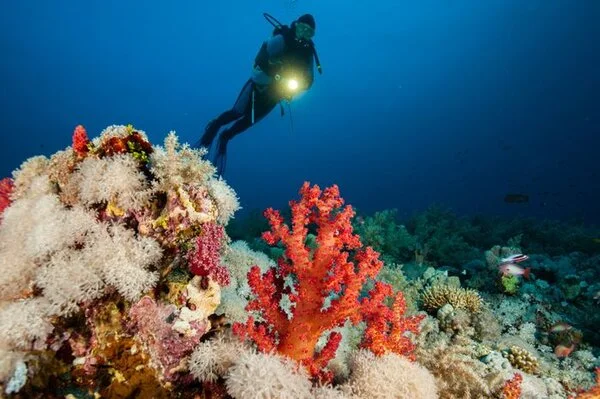Barrier Reef avoids ‘in danger,’ UNESCO warns climate risk

UNESCO drafted a decision that may keep the Great Barrier Reef off the list of world heritage sites “in danger”. The UN cultural agency reported that the Australian government has taken positive steps to protect the reef since a monitoring mission visited the region in March last year. However, the agency warned that the world’s biggest coral reef system is still under “serious threat” from global warming and pollution.
The Australian government welcomed the draft decision, with Prime Minister Anthony Albanese saying it was a vote of confidence in their environmental actions. “This confirms that my government is working hard to protect the reef, is acting on climate change, and that the rest of the world has taken notice,” he said. The World Heritage Committee will consider the recommendation not to add the reef to the “in danger” list in September.
How is Australia protecting the Great Barrier Reef?
The Australian government responded by making some positive improvements, including passing a law to reduce emissions by 43% by 2030 and reach net zero by 2050. They also canceled plans to build two new dams in Queensland that would have affected water quality in the reef, and rejected a coal mining application in February of this year because it could harm the nearby Great Barrier Reef.
The level of hard coral coverage in the northern and central regions of the reef is at its highest since monitoring began 36 years ago. This is a positive sign, but the reef is still threatened by climate change and pollution.
 A school of fish swim above corals on Moore Reef in Gunggandji Sea Country off coast of Queensland in eastern Australia.AP Photo/Sam McNeil
A school of fish swim above corals on Moore Reef in Gunggandji Sea Country off coast of Queensland in eastern Australia.AP Photo/Sam McNeil
UNESCO noted that the Australian government has made progress in protecting the reef, but the government needs to do more to address the underlying threats. The report recommended that the World Heritage Committee place the reef on the List of World Heritage Sites in Danger, but with a monitoring mechanism to assess progress in protecting the reef.
The World Heritage Committee will consider the UNESCO report in September 2023 and make a decision on whether to place the Great Barrier Reef on the List of World Heritage Sites in Danger
Global warming, pollution and fishing still threaten the Great Barrier Reef
UNESCO asked Australia to provide a progress report next February on their efforts to reduce threats from fishing and cut pollution. UNESCO called on Australia to do more to protect the Great Barrier Reef from climate change, which could become irreversible by the middle of the century.

The Australian Academy of Sciences (AAS) released a report on Thursday that found the current plan to manage the Great Barrier Reef is too inflexible in the face of climate change. The report recommended a comprehensive review of the plan and further action from Australia to protect the reef.
Professor Chennupati Jagadish, president of the AAS, said that sticking to the current plan will not be the best solution for the Great Barrier Reef. He said that there are opportunities to slow the decline in the health of the reef, but that Australia needs to take action now.


- Art
- Causes
- Best Offers
- Crafts
- Dance
- Drinks
- Film
- Fitness
- Food
- Games
- Festival
- Gardening
- Health
- Home
- Literature
- Music
- Networking
- Other
- Party
- Religion
- Shopping
- Sports
- Theater
- Wellness



